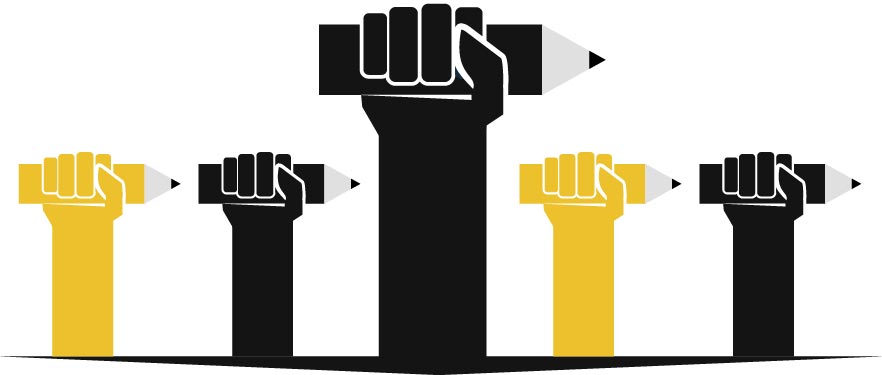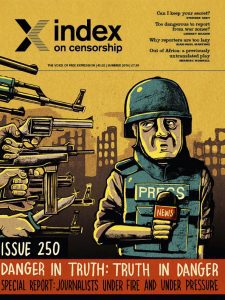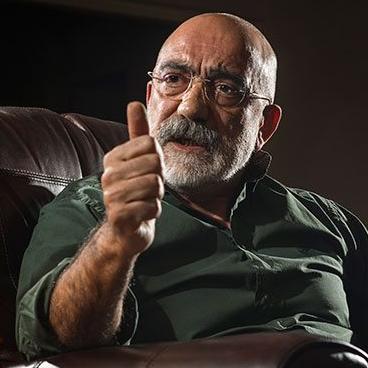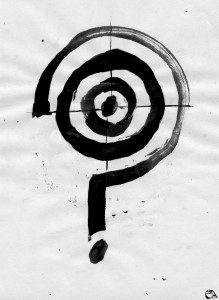Index relies entirely on the support of donors and readers to do its work.
Help us keep amplifying censored voices today.
[vc_row][vc_column][vc_column_text]
Each week, Index on Censorship’s Mapping Media Freedom project verifies threats, violations and limitations faced by the media throughout the European Union and neighbouring countries. Here are five recent reports that give us cause for concern.
2 May 2017 – Three journalists for Cornwall Live were shut in a room, prevented from filming and severely limited on what questions they could ask during British Prime Minister Theresa May’s visit to a factory in Cornwall called AP Diving.
A reporter from Cornwell Live who was live blogging the event wrote: “We’ve been told by the PM’s press team that we were not allowed to stand outside to see Theresa May arrive.”
He later added: “PM is here – but we’ve been shown the door. The prime minister is behind this door – but we can’t show you. Her press team has said print journalists are not allowed to see her visiting the company.”
The journalist then described conditions surrounding the interview with May: “We’ve been allowed to ask our questions to the prime minister (although we are forbidden to film or photograph her answering them).”
7 May 2017 – Loes Reijmer, a journalist and columnist for De Volkskrant, has faced a storm of abuse after the popular right-wing blog Geenstijl published her photo with the text: “Would you do her?”
Thousands of readers responded in the comments section, many containing sexual comments and rape threats.
Reijmer had published several critical columns about the controversial weblog Geenstijl, a provocative online portal, owned by Telegraaf Media Group and is one of the most popular news sites in the Netherlands. Geenstijl has faced years of criticism for similar posts.
The attack on Reijmer led to a public call on advertisers to boycott Geenstijl and it’s affiliate video blog Dumpert. The dailies De Volkskrant and NRC published an open letter on 6 May 2017 signed by over a hundred women from media and entertainment calling big companies to pull out their advertisement because they “support humiliation of women”. Over the following days, many advertisers withdrew their adverts.
The Dutch Union for Journalists has condemned Geenstijl in a statement on their website: “The tarnish way in which journalists like Reijmer are being attacked by readers, this provocation by Geenstijl, is one of many cases of intimidation of journalists. In this case, it was sexual harassment, something that female journalists who have the guts to be critical are increasingly facing, which is unacceptable.”
2 May 2017 – Aziz Garashoglu, one of the managers of an online TV platform Kanal 13, was detained and then sentenced to 30 days in administrative detention.
Garashoglu was detained together with his wife Lamiya Charpanova who is an editor at the channel. Both were questioned for more than an hour.
Charpanova was released, while her husband was taken to Nasimi district court where he was sentenced to 30 days in administrative detention on charges of allegedly resisting the police.
Speaking to journalists after the hearing, lawyer Elchin Sadigov said Aziz was rounded up for his alleged resemblance to a man named Faig Cabbarov, who has been on the list of fugitives since 2015. But the lawyer also confirmed that after seeing the picture it was clear there was no resemblance.
Sadigov said he will be appealing the decision. Kanal 13 was founded in 2010 as an independent online television. One of the founders of the website lives in exile in Germany.
1 May 2017 – Videojournalist Henry Langston, who works for Vice UK, was hit by police officers and then injured by a piece of tear gas canister while reporting on a May Day march in Paris, Langston reported on Twitter and confirmed to Mapping Media Freedom.
The journalist said he was first hit across the knee with a baton by an officer.
Langston reported that the protest was “very violent on both sides” and that he and his crew were “following a group of anarchists” during the incident.
“Police officers were aiming flash-balls (a non-lethal hand-held weapon) at people’s heads, firing tear gas canisters directly at people. It seems to me they weren’t differentiating between protesters and journalists”.
“Later, the crowd was trapped against a wall. Police hit you [with batons] no matter who you were. Then they let people out and continued hitting them. I was wearing a helmet that said TV and they hit me anyway”, Langston continued.
An hour later Langston said he was hit in the leg by what he alleges “was a mechanism from a tear gas canister”. Langston was treated in hospital for injuries where he received stitches.
His cameraperson, freelancer Devin Yuceil, was also hit in the stomach with a piece of a flash grenade.
24 April 2017 – A group of about 10 masked individuals barged into the offices of Greek daily Kathimerini in Thessaloniki, throwing paint and flyers.
According to a report published on the news website protagon.gr, the flyers had threats written on them, including: “good news is a stone on a journalist’s head”.
The Athens Union of Journalists (ESIEA) published a press release on Monday, following the attack: “The board of ESIEA expresses its support to the colleagues and all the employees of the newspaper and notes that such actions, wherever they come from, will not weaken the morale of journalists for [providing] objective information but the state must do its duty.”
The press released emphasised that journalists and their unions do not give in to blackmails and intimidation attempts pursued by “dark circles”.
All the Greek political parties condemned the attack. The government-leading Syriza said in a statement that acts against the freedom of the press “have no place in the political confrontation,” while the main opposition party, New Democracy expressed its “unequivocal condemnation of the attack by anarchists”.[/vc_column_text][/vc_column][/vc_row][vc_row][vc_column][vc_column_text]
Click on the bubbles to view reports or double-click to zoom in on specific regions. The full site can be accessed at https://mappingmediafreedom.org/[/vc_column_text][/vc_column][/vc_row][vc_row][vc_column][vc_basic_grid post_type=”post” max_items=”4″ element_width=”6″ grid_id=”vc_gid:1494498939864-9d0448a9-e2e1-3″ taxonomies=”6564″][/vc_column][/vc_row]
[vc_row][vc_column][vc_column_text]

The International Bill of Human Rights, consisting of the five core human rights treaties of the United Nations that function to advance the fundamental freedoms and to protect the basic human rights of all people, was entered into force in 1967 by the UN General Assembly.
The documents contained in the International Bill of Human Rights are: the Universal Declaration of Human Rights; the International Covenant on Economic, Social and Cultural Rights; the International Covenant on Civil and Political Rights; the Optional Protocol to the International Covenant on Civil and Political Rights; and the Second Optional Procotol to the International Covenant on Civil and Political Rights, aiming at the abolition of the death penalty
The full declaration sets out the basic rights all people should enjoy and expect from their governments and other governments. The Universal Declaration of Human Rights and the International Covenant on Civil and Political Rights deal directly with freedom of expression.
Article 19 of the Universal Declaration of Human Rights
Everyone has the right to freedom of opinion and expression; this right includes freedom to hold opinions without interference and to seek, receive and impart information and ideas through any media and regardless of frontiers.
Article 19 of the International Covenant on Civil and Political Rights
1. Everyone shall have the right to hold opinions without interference.
2. Everyone shall have the right to freedom of expression; this right shall include freedom to seek, receive and impart information and ideas of all kinds, regardless of frontiers, either orally, in writing or in print, in the form of art, or through any other media of his choice.
3. The exercise of the rights provided for in paragraph 2 of this article carries with it special duties and responsibilities. It may therefore be subject to certain restrictions, but these shall only be such as are provided by law and are necessary:
(a) For respect of the rights or reputations of others;
(b) For the protection of national security or of public order (ordre public), or of public health or morals.
Article 25 of the International Covenant on Civil and Political Rights
Every citizen shall have the right and the opportunity, without any of the distinctions mentioned in article 2 and without unreasonable restrictions:
(a) To take part in the conduct of public affairs, directly or through freely chosen representatives;
(b) To vote and to be elected at genuine periodic elections which shall be by universal and equal suffrage and shall be held by secret ballot, guaranteeing the free expression of the will of the electors;
c) To have access, on general terms of equality, to public service in his country.
[/vc_column_text][/vc_column][/vc_row][vc_row][vc_column width=”1/2″][vc_column_text]

Index on Censorship’s summer magazine 2016
We’ll send you our weekly emails and periodic updates on our events. We won’t share your personal information with anyone outside Index.
You’ll also get access to an exclusive collection of articles from our landmark 250th issue of Index on Censorship magazine exploring journalists under fire and under pressure. Your downloadable PDF will include reports from Lindsey Hilsum, Laura Silvia Battaglia and Hazza Al-Adnan.[/vc_column_text][/vc_column][vc_column width=”1/2″][gravityform id=”20″ title=”false” description=”false” ajax=”false”][/vc_column][/vc_row][vc_row][vc_column][vc_custom_heading text=”More information about freedom of expression”][vc_column_text]Why is free speech important? Freedom of expression is a fundamental human right. It reinforces all other human rights, allowing society to develop and progress. The ability to express our opinion and speak freely is essential to bring about change in society.
Why is access to freedom of expression important? All over the world today, both in developing and developed states, liberal democracies and less free societies, there are groups who struggle to gain full access to freedom of expression for a wide range of reasons including poverty, discrimination and cultural pressures. While attention is often, rightly, focused on the damaging impact discrimination or poverty can have on people’s lives, the impact such problems have on free expression is less rarely addres[/vc_column_text][/vc_column][/vc_row][vc_row][vc_column][vc_basic_grid post_type=”post” max_items=”4″ element_width=”6″ order=”ASC” grid_id=”vc_gid:1494247299440-5e8d8e06-86b1-1″ taxonomies=”9210″][/vc_column][/vc_row]
[vc_row][vc_column][vc_column_text]

Journalist Ahmet Altan is charged with inserting subliminal messages in support of the failed 15 July coup in Turkey.
Nine months. That’s how long brothers Ahmet and Mehmet Altan have been in pre-trail detention in Turkey. Prosecutors are demanding multiple life sentences for the brothers, who will face their first day in court on 19 June.
“The case against Ahmet and Mehmet Altan is deeply troubling. The ongoing judicial harassment of the Altans and other journalists puts ‘democratic’ Turkey in the same camp as some of the world’s most egregious dictatorships. The post-coup crackdown on freedom of expression and the press must be rolled back,” Melody Patry, head of advocacy, Index on Censorship said.
Ahmet Altan has written for several of the country’s most influential newspapers. He and his brother Mehmet, an academic, were arrested and are being held on suspicion of “spreading subliminal messages”, relating to an appearance Ahmet Altan made on a television talk show the night before the 15 July coup attempt.
Ahmet Altan is one of Turkey’s top journalists, having worked in every position from reporter to editor-in-chief at several newspapers, as well as a producer of television news. He was a columnist for daily newspapers including Hurriyet and Milliyet, and in 2007 he started Taraf, an opposition daily. In 2008 he was charged with “denigrating Turkishness” after he wrote an article dedicated to the victims of the Armenian genocide. He is also considered one of Turkey’s finest novelists, with his most recent book, Endgame, having been published last year.
Mehmet Altan is a professor at Istanbul university, where he has worked for 30 years. A vocal supporter of democracy, he has often called for Turkey to establish its republic on human rights, rather than religious or ethnic identity. He has written several books about politics in Turkey.
The pair were arrested in an early morning raid on 10 September. Ahmet had appeared on a talk show on the Can Erzincan television channel on 14 July, where he is accused of sending messages to viewers to support a coup. The channel has since been shut down. It was perceived by authorities to have been supportive of the cleric Fethullah Gulen, who the government blames for the coup.[/vc_column_text][vc_column_text]
Send a letter of support to Ahmet and Mehmet Altan.
Show your solidarity with the Altans by letting them know the world is watching their case.
Tweet Turkey’s president:
[socialpug_tweet tweet=”.@RT_Erdogan Turkey must end crackdown on #mediafreedom #FreeTurkeyMedia #journalismisnotacrime #AhmetAltan #MehmetAltan” style=”2″ remove_url=”yes” remove_username=”yes”][/vc_column_text][vc_column_text]

[/vc_column_text][/vc_column][/vc_row][vc_row][vc_column][vc_basic_grid post_type=”post” max_items=”12″ style=”load-more” items_per_page=”4″ element_width=”6″ grid_id=”vc_gid:1494246747427-afb47fc0-82c9-2″ taxonomies=”55″][/vc_column][/vc_row]
[vc_row][vc_column][vc_column_text]

A drawing by French cartoonist t0ad
Adopted and proclaimed on 10 December 1948 by the General Assembly of the United Nations, the Universal Declaration of Human Rights contains 30 articles that have been embedded in international treaties, national constitutions and other laws. The declaration is one of the cornerstones of the International Bill of Human Rights, which became law in 1976.
The full declaration sets out the basic rights all people should enjoy and expect from their governments and other governments. Though the declaration is often ignored, it represents the ideal that the world’s government should strive to meet.
Article 18 and Article 19 deal with freedom of thought and freedom of expression most directly, though other articles also reference these fundamental rights.
Article 18 of the Universal Declaration of Human Rights
Everyone has the right to freedom of thought, conscience and religion; this right includes freedom to change his religion or belief, and freedom, either alone or in community with others and in public or private, to manifest his religion or belief in teaching, practice, worship and observance.
Article 19 of the Universal Declaration of Human Rights
Everyone has the right to freedom of opinion and expression; this right includes freedom to hold opinions without interference and to seek, receive and impart information and ideas through any media and regardless of frontiers.[/vc_column_text][/vc_column][/vc_row][vc_row][vc_column][vc_custom_heading text=”Subscribe to the Index newsletters” font_container=”tag:h3|text_align:left” use_theme_fonts=”yes”][vc_separator color=”black”][/vc_column][/vc_row][vc_row][vc_column width=”1/2″][vc_column_text]
Index on Censorship is a nonprofit that defends people’s freedom to express themselves without fear of harm or persecution. We fight censorship around the world.
To find out more about Index on Censorship and our work protecting free expression, join our mailing list to receive our weekly newsletter, monthly events email and periodic updates about our projects and campaigns. See a sample of what you can expect here.
Index on Censorship will not share, sell or transfer your personal information with third parties. You may may unsubscribe at any time. To learn more about how we process your personal information, read our privacy policy.
You will receive an email asking you to confirm your subscription to the weekly newsletter, monthly events roundup and periodic updates about our projects and campaigns.
[/vc_column_text][/vc_column][vc_column width=”1/2″][gravityform id=”20″ title=”false” description=”false” ajax=”false”][/vc_column][/vc_row][vc_row][vc_column][vc_separator color=”black”][/vc_column][/vc_row][vc_row][vc_column][vc_custom_heading text=”More information about freedom of expression” font_container=”tag:h2|font_size:26|text_align:left” use_theme_fonts=”yes”][vc_column_text]Why is free speech important? Freedom of expression is a fundamental human right. It reinforces all other human rights, allowing society to develop and progress. The ability to express our opinion and speak freely is essential to bring about change in society.
Why is access to freedom of expression important? All over the world today, both in developing and developed states, liberal democracies and less free societies, there are groups who struggle to gain full access to freedom of expression for a wide range of reasons including poverty, discrimination and cultural pressures. While attention is often, rightly, focused on the damaging impact discrimination or poverty can have on people’s lives, the impact such problems have on free expression is less rarely addressed.[/vc_column_text][/vc_column][/vc_row]